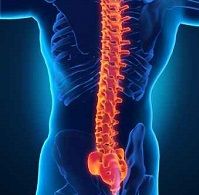Article
Corrective Spinal Surgery Complications: An Analysis
Author(s):
A new, prospective study is shedding light on complications associated with adult spinal deformity surgery.

A new, prospective study is shedding light on complications associated with adult spinal deformity surgery.
Spinal surgery for adult spinal deformity can be effective, but these procedures can have high complication rates. However, these complications have not been well defined, something that would be particularly useful for counseling patients and improving overall care.
The International Spine Study group, led by Justin S. Smith, MD, PhD, Professor of Surgery in the Department of Neurosurgery at the University of Virginia Health System in Charlottesville, VA, has provided a detailed assessment of the rates of different complications and risk factors. The results were published online ahead of print on February 26 in the Journal of Neurosurgery: Spine.
The multi-centered team followed 346 patients who had surgery for spinal deformities for a minimum of two years. To ensure that the standardized data forms were complete, each center had an onsite coordinator. They classified complications as perioperative (within 6 weeks of surgery) or delayed (after 6 weeks) and either major or minor.
Of the 346 participants, 291 continued for at least 2 years of follow up and 82 required at least one surgical revision. They logged 270 perioperative complications (145 minor, 125 major) in 152 patients and 199 delayed complications (62 minor, 127 major) affecting 124 patients. Two patients, who were not counted among the 291 in the analysis, died during the initial six weeks following surgery. Although the complication rates were high, the authors noted that not all of them impacted the patients equally.
The most common complication categories were implant related, radiographic, neurological, operative, cardiopulmonary, and infection. They also found that higher complication rates were associated with older age, higher body-mass index, more comorbidities, previous spine fusion, and having 3-column osteotomies.
“This study represents one of the most complete and detailed reports of perioperative and delayed complications associated with ASD surgery to date,” the authors wrote. “These findings may prove useful for treatment planning, patient counseling, benchmarking of complication rates, and efforts to improve the safety and cost-effectiveness of patient care.”




